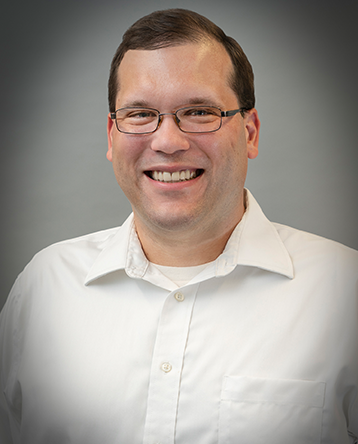NextM Seminar: Bryan Webler
January 27, 2023
2:30 p.m. ET
Scott 6142
January 27, 2023
2:30 p.m. ET
Scott 6142

Next Manufacturing Center seminars are open to Center members, as well as other interested members of the CMU community. Next Manufacturing Center Consortium members are able to participate online.
Topic: Direct energy deposition additive manufacturing of tungsten and tungsten alloys
Speaker: Bryan Webler, professor, materials science and engineering
Certain aerospace applications demand metallic materials to perform well at extremely high temperatures, on the order of 2000°C. At these extreme temperatures, alloys composed of the refractory elements are the only viable candidates. The refractory element with the highest melting temperature is tungsten, at 3422°C. However, pure tungsten is very difficult to process using conventional thermomechanical methods. There have been many investigations into the use of alloying elements to influence the properties of tungsten, but the scope of knowledge is still limited compared to the possible space of alloy compositions. This presentation deals with alloy and process design for printing tungsten and tungsten alloys by powder-feed direct energy deposition (DED) additive manufacturing (AM). The use of AM offers the usual advantages over conventional methods (less material use, geometric complexity, etc.), but the AM of tungsten parts is still challenging because of tungsten’s high melting temperature, high thermal conductivity, and high ductile-to-brittle transition temperature. In this work we deposited single-tracks and blocks of pure tungsten and tungsten-tantalum alloys at varying process conditions. With proper control of parameters, particularly reducing oxygen in the build environment, small parts that are dense and crack-free can be printed. The addition of tantalum to the printed parts results in smaller grain sizes and initial evidence suggests improved ductility at low temperatures. I will also discuss development of a database of refractory alloy property data and a workflow that might be useful for design of refractory alloys.
Bryan Webler received a bachelor’s degree in engineering physics from the University of Pittsburgh in 2005, and his Master’s (2007) and Ph.D. (2008) in materials science and engineering from Carnegie Mellon. His work at Carnegie Mellon was with the Center for Iron and Steelmaking Research, studying high temperature oxidation of low carbon steels. From 2008 to 2013, he was a senior engineer in the Materials Technology Department of the Bettis Atomic Power Laboratory, studying corrosion resistance and mechanical behavior of stainless steels and nickel-base alloys.
February 26 2026
12:30 PM ET
Next Manufacturing
New faculty highlight with Liwei Wang, Assistant Professor, Mechanical Engineering
Scott 6142
March 23 2026
12:30 PM ET
Next Manufacturing
New faculty highlight with Francis Ogoke, Assistant Professor, Mechanical Engineering
Scott 6142
April 6 2026
12:00 PM ET
Next Manufacturing
New faculty highlight with Misha Khrenov, Ph.D. Candidate, Mechanical Engineering
Scott 6142
April 24 2026
10:00 AM ET
Next Manufacturing
Yash Parikh, Ph.D., Process Engineering Consultant, EOS North America
TBD